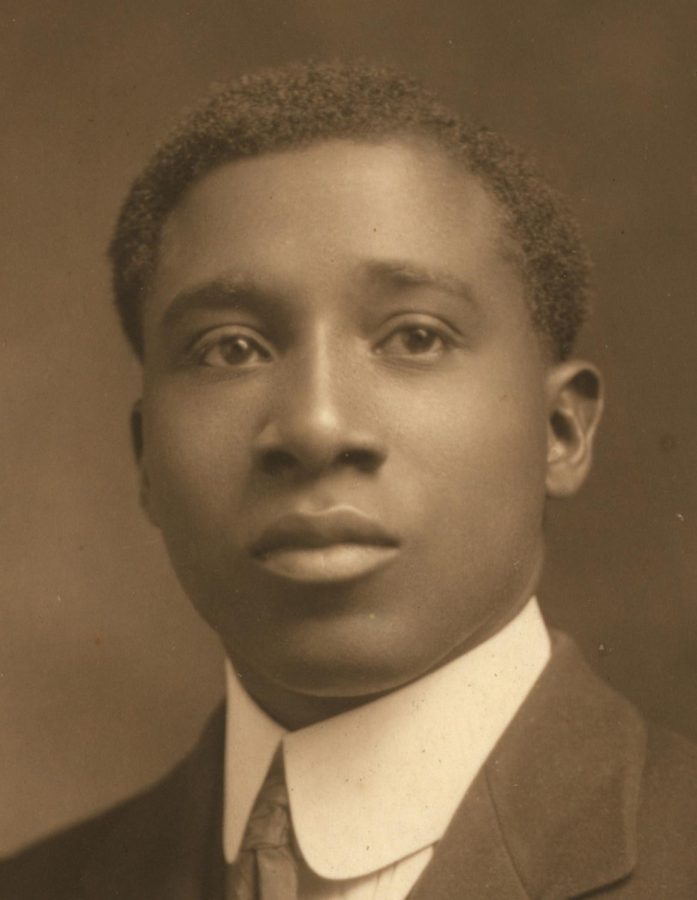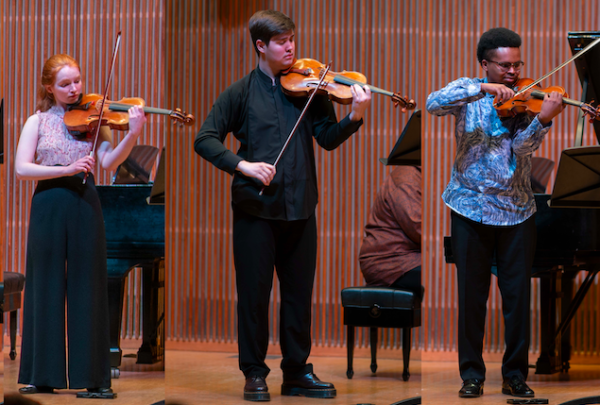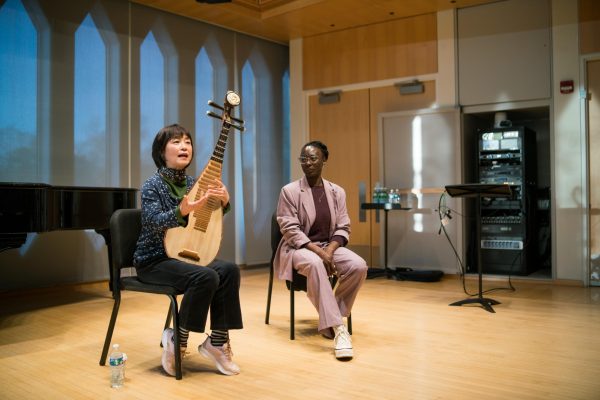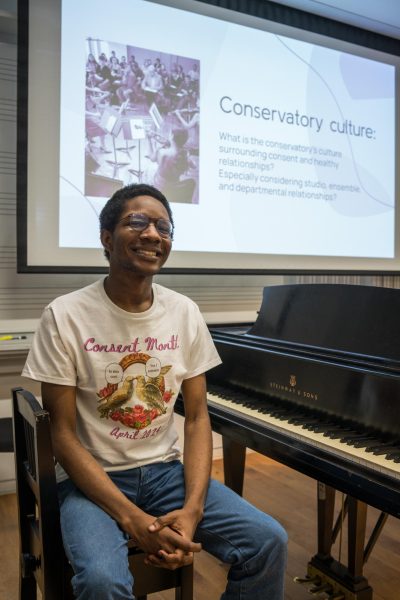Conservatory Performances to Honor Nathaniel Dett
Robert Nathaniel Dett
In 1908, Robert Nathaniel Dett (1882–1943) graduated from Oberlin College and Conservatory with a double major in Piano Performance and Composition. The first Black student to graduate from Oberlin Conservatory with a double major, he went on to become an influential teacher, composer, and performer throughout his life. His numerous achievements have only recently begun to receive acclaim in the Conservatory community.
In 1900, Dett composed his first piece: After the Cake Walk, a ragtime characteristic march. Dett then enrolled in Oliver Willis Halsted’s Conservatory of Music located in Lockport, NY, where he composed his second piece, a piano march and twostep titled The Cave of the Winds. In 1903, Dett began his studies at Oberlin Conservatory, where he took a five-year double-major track. In the summer after his first year at Oberlin, a patron at the Cataract House in Niagara Falls, NY, noticed Dett’s talent during a performance, and provided financial support for him until he graduated.
The time that Dett spent at the Conservatory deeply influenced his composing style and aspirations. In a written interview for The Black Perspective in Music journal, Dett mentioned that over the course of his studies at Oberlin, he became motivated to compose and perform music inspired by spirituals that were sung to him by his family growing up.
“[T]he most vivid and far reaching memory I have of Oberlin was the result of a visit of the famous Kneisel String Quartet, who played as part of one of their programs a slow movement by Dvořák, based on traditional airs,” Dett wrote. “Suddenly, it seemed I heard again the frail sweet voice of my long departed grandmother, calling across the years; and, in a rush of emotion which stirred my spirit to its very center, the meaning of the songs which had given her soul such peace was revealed to me.”
After graduating from Oberlin in 1908, Dett took up a post at Lane College in Jackson, TN. Three years later, Dett became the music director of Lincoln Institute in Jefferson City, MO. In 1913, he moved to the Hampton Institute, becoming the institution’s first Black director of music. During his 19 years teaching there, Dett founded the Hampton Choral Union, the Musical Arts Society, and the Hampton Institute Choir and School of Music. He also continued his education at Harvard University with Arthur Foote from 1920–21, and then in 1929, he studied under Nadia Boulanger at the American Conservatory in Fontainebleau, France. In 1926, Dett became the first Black alum do to receive an honorary doctorate from Oberlin College. In 1932, Dett received a master’s degree from the Eastman School of Music.
Dett continued to compose pieces throughout his career, including his influential Chariot Jubilee (1919), an extended motet for tenor, chorus, and orchestra. After receiving his Master of Music degree from Eastman, Dett took up a post as the choral conductor at Bennett College in Greensboro, NC. In 1942, Dett returned to Rochester, NY, and worked at a local church while contributing to the United Service Organizations to support the U.S. efforts during World War II. While serving as a music advisor for the USO, Dett suffered a heart attack and passed away Oct. 2, 1943.
R. Nathaniel Dett’s extraordinary accomplishments have left a deep imprint on Oberlin Conservatory. The Oberlin Orchestra, Oberlin College Choir, and Musical Union are honoring his legacy by performing his composition The Ordering of Moses in the upcoming months three times — twice in Finney Chapel, on Oct. 13 and Jan. 17, and once at Carnegie Hall on Jan. 20. When asked about the importance of these performances, the Conservatory’s current Orchestra Director Raphael Jiménez spoke of Dett’s experiences as a student at Oberlin.
“For the Oberlin ensembles, bringing to life the oratorio The Ordering of Moses has a special significance,” Jiménez said. “It is impossible not to think that Nathaniel Dett was walking around this campus in the early 20th century. He would go to his piano and composition lessons passing by Finney Chapel as it was being built. Dett graduated in 1908, precisely the year that Finney Chapel opened. Playing his music in this building feels very special indeed. By incorporating African-American musical traditions into his music, Nathaniel Dett most definitely answered the challenge that Antonin Dvořák presented to American composers in the 1890s by asking them to find a distinctive American musical voice.”
Correction: An earlier version of this article incorrectly stated that Dett was the first Black student to graduate from Oberlin Conservatory; he was in fact the first Black student to graduate from the Conservatory with a double major (piano performance and composition in 1908). The first Black student to graduate from the Conservatory was Harriet Gibbs Marshall in 1889. The article has been updated to reflect this error.
Although not mentioned in the earlier version, Dett was also the first Black alum to receive an honorary doctorate from the Oberlin College in 1926.





